![]() |
|
|
 |
|
V. The Authors. The ABC of Harmony Meaning
|
|
|

|
|
|
|
| |
V. The Authors. The ABC of Harmony Meaning
In Russian: https://peacefromharmony.org/?cat=ru_c&key=517
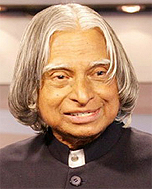 APJ Abdul Kalam APJ Abdul Kalam
The world needs the great vision of peace and prosperity. Peace and prosperity for all the nations of the planet Earth. How can we make such a vision a reality? I see a dawn of a beautiful Star, The dawn of a shining vision, The emergence of enlightened citizens. – The ABC of Harmony is the dawn of a shining, harmonious vision of peace and prosperity for all the nations of the planet Earth! Together with it, the enlightened citizens will emerge, capable of building a harmonious civilization of peace and prosperity on the planet Earth! Dr. APJ Abdul Kalam, Poet, President of India, 2002–2007. GHA Highest Honorary Title: WORLD HARMONY CREATOR | Leo Semashko 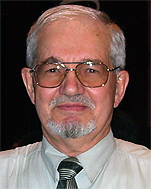 The ABC of Harmony is the first global textbook of social harmony in human history, accessible to all nations and cultures and expressing, in the first approximation, the philosophy and worldview of harmonious civilization born in 2009. Based on science it reveals 20 fundamental elements / spheres of the deep structure of social harmony on every level from global to local, including each person. This is a level of holistic social thinking unknown to the past, which provides a harmonious solution of global problems of humanity and its survival. Therefore, it teaches to achieve world peace, building harmonious civilization, overcoming the pathologies of dying industrial civilization and to maintain the sustainable development of mankind in nature, prosperity, justice, love, brotherhood of all nations, religions and cultures on Earth. The ABC of Harmony opens this era of harmonious civilization along with the start of the nuclear "zero" and its awakened consciousness in the GHA book "Harmonious Civilization" (2009). The ABC of Harmony is the first global textbook of social harmony in human history, accessible to all nations and cultures and expressing, in the first approximation, the philosophy and worldview of harmonious civilization born in 2009. Based on science it reveals 20 fundamental elements / spheres of the deep structure of social harmony on every level from global to local, including each person. This is a level of holistic social thinking unknown to the past, which provides a harmonious solution of global problems of humanity and its survival. Therefore, it teaches to achieve world peace, building harmonious civilization, overcoming the pathologies of dying industrial civilization and to maintain the sustainable development of mankind in nature, prosperity, justice, love, brotherhood of all nations, religions and cultures on Earth. The ABC of Harmony opens this era of harmonious civilization along with the start of the nuclear "zero" and its awakened consciousness in the GHA book "Harmonious Civilization" (2009).
The ABC marks the start of the Age of Harmonious Enlightenment of humanity in the 21st century, establishing harmonious value-based education for children and youth around the world. The ABC symbolizes the second axial age of humanity, its turn towards the new world order without wars, arms races, hunger, poverty, ignorance, with the new man – HOMO HARMONICUS, for whom the highest value lies in the maximization of inner and social harmony, rather than profit. Our ABC is the fruit of seven years of work of GHA authors, brought together the creative efforts of the representatives of different cultures and religions, inspired by the spirit of joint knowledge and embodiment of global harmony. Our ABC is not the end but only the beginning of the scientific knowledge of global harmony and the initial nuclear of spiritual culture of the new civilization. Its language, thought and worldview are open to the harmonious unity of the whole humanitarian diversity of mankind. Therefore, today the ABC of Harmony is the best textbook for every person of Earth, especially for teachers, children and youth. Leo Semashko, PhD, State Councilor of St. Petersburg; President of Global Harmony Association (GHA); Author of Tetrism philosophy and Tetrasociology as a science of social harmony and harmonious civilization: Author of 12 social discoveries and more than 300 scientific publications, including 16 books and brochures; Chief editor of the ABC of Harmony. Saint-Petersburg, Russia | Ammar Banni 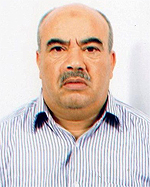 If you believe in Harmonious Education, think with us, dream with us, proclaim with us its universal multicultural dimension, which appreciates the right of each man to be by the other, to tolerate and to recognize not only their own but any other culture as well. Our ideas of GHA in the ABC of Harmonious Education provide harmonization of human spirituality. It creates the great energy for world peace every day on our planet. We call our governments and our leaders for peace from the priority of harmonious development for humanity as a whole and not just for separate countries. If you believe in Harmonious Education, think with us, dream with us, proclaim with us its universal multicultural dimension, which appreciates the right of each man to be by the other, to tolerate and to recognize not only their own but any other culture as well. Our ideas of GHA in the ABC of Harmonious Education provide harmonization of human spirituality. It creates the great energy for world peace every day on our planet. We call our governments and our leaders for peace from the priority of harmonious development for humanity as a whole and not just for separate countries.
Ammar Banni: Professor in Education and Human science, Poet. Guemar, Algeria. | Harold Becker 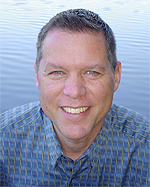 Genuine harmony is cultivated with a loving heart, which when embodied and expressed, inspires more love. These two aspects are forever intertwined as one. Thus the development and expansion of harmony in one's personal life creates the foundation of a peaceful, loving and harmonious civilization. Genuine harmony is cultivated with a loving heart, which when embodied and expressed, inspires more love. These two aspects are forever intertwined as one. Thus the development and expansion of harmony in one's personal life creates the foundation of a peaceful, loving and harmonious civilization.
Harold W. Becker is the Founder and President of the internationally recognized nonprofit, The Love Foundation, Inc. and has conceived the annual celebration of humanity known as Global Love Day each May 1st. USA. | Oleg Bodnar 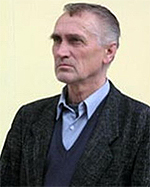 The ABC of Harmony is serious and important on a scale of the worldwide ideas of harmony theoretical work. Its level should be estimated in comparison with the higher approaches to the harmony theory in a whole. Particularly, I mean idea of the noosphere of Vladimir Vernadsky. I think it can be interpreted in terms of The ABC of Harmony, which will allow to concretize the meaning and to understand a place of the noosphere's idea in system of "harmonious knowledge" on the one hand and to test tooling applicability of The ABC on the other hand. Undoubtedly, the ABC theme should find a fundamental place in the course contents "Social harmony" within the bounds of general subject "Harmony Theory". The ABC of Harmony is serious and important on a scale of the worldwide ideas of harmony theoretical work. Its level should be estimated in comparison with the higher approaches to the harmony theory in a whole. Particularly, I mean idea of the noosphere of Vladimir Vernadsky. I think it can be interpreted in terms of The ABC of Harmony, which will allow to concretize the meaning and to understand a place of the noosphere's idea in system of "harmonious knowledge" on the one hand and to test tooling applicability of The ABC on the other hand. Undoubtedly, the ABC theme should find a fundamental place in the course contents "Social harmony" within the bounds of general subject "Harmony Theory".
Oleg Bodnar, Architect, Doctor in Art History, Professor, Head, Department of Arts Management, Lviv National Academy of Arts, Ukraine. | Vladimir Branskiy 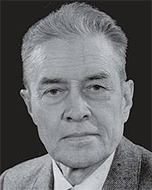 According to social synergy the highest ABC of Harmony consists in an endless approximation of humanity to the condition of superattractor of harmonious civilization. It follows that although in history there is no "pre-established harmony" between order and chaos, and, therefore, between good and evil (contrary to Leibniz), still there is self-organizing harmony that appears between these factors. The practical importance of the synergistic approach to social harmony lies in finding the patterns of way out of modern spiritual chaos, which could lead to a humanitarian catastrophe. This way out is through the conscious creation of a harmonious civilization, in which the top organizing role belongs to the ABC of Harmony. According to social synergy the highest ABC of Harmony consists in an endless approximation of humanity to the condition of superattractor of harmonious civilization. It follows that although in history there is no "pre-established harmony" between order and chaos, and, therefore, between good and evil (contrary to Leibniz), still there is self-organizing harmony that appears between these factors. The practical importance of the synergistic approach to social harmony lies in finding the patterns of way out of modern spiritual chaos, which could lead to a humanitarian catastrophe. This way out is through the conscious creation of a harmonious civilization, in which the top organizing role belongs to the ABC of Harmony.
Vladimir Bransky: PhD, Professor of Philosophy of Science and Technology, St. Petersburg State University. Author of Social Synergetics and over 200 published works, including 10 monographs. St. Petersburg, Russia | Yuliya Budnikova 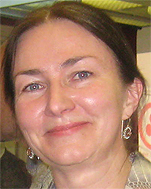 The significance of the ABC of Harmony project, its moral charge lies in the fact that the need for social harmony is postulated not only as a notice, but as a requirement of the day, as the vital factor in sustainable development and non-traumatic, non-catastrophic existence of human society. I consider awareness of the need of harmony between nature and society, in other words cosmicality of mind, to be the main advantage and the most promising aspect of the new sociology which forms the basis of the ABC. The foundations of this new, global thinking were laid by Nicholas Roerich, Vladimir Vernadsky, and many others, and today it is developed by the authors of the ABC of Harmony. The significance of the ABC of Harmony project, its moral charge lies in the fact that the need for social harmony is postulated not only as a notice, but as a requirement of the day, as the vital factor in sustainable development and non-traumatic, non-catastrophic existence of human society. I consider awareness of the need of harmony between nature and society, in other words cosmicality of mind, to be the main advantage and the most promising aspect of the new sociology which forms the basis of the ABC. The foundations of this new, global thinking were laid by Nicholas Roerich, Vladimir Vernadsky, and many others, and today it is developed by the authors of the ABC of Harmony.
Julia Budnikova – Philologist, Deputy Director for exhibitions, excursions and methodological work in the St. Petersburg State Museum Institute of the Roerich family. St. Petersburg, Russia | Dmitriy Delyukin 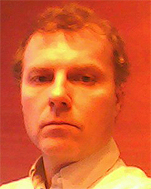 The cognitive process, like any other process of mastering some kind of knowledge or skills, begins with the basics. Then, moving from simple to complex, not only should we not forget about the beginning of the process, but also be able to see this beginning in harmony with the complex. Only harmony will teach to understand and see the essence of things or events. Our "ABC" reveals the secrets of harmony and teaches them to people. Every single thing in man should be in harmony. The cognitive process, like any other process of mastering some kind of knowledge or skills, begins with the basics. Then, moving from simple to complex, not only should we not forget about the beginning of the process, but also be able to see this beginning in harmony with the complex. Only harmony will teach to understand and see the essence of things or events. Our "ABC" reveals the secrets of harmony and teaches them to people. Every single thing in man should be in harmony.
Dmitry Delyukin – graduate of the Philological Faculty of St. Petersburg State University (1994), currently is an employee of St. Petersburg State Museum Institute of the Roerich family. St. Petersburg, Russia. | François Houtart 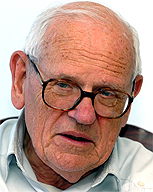 The ABC is an interesting theoretical production to express in a coherent way and to show a holistic approach to the complex situation of reality. At the same time it is an important practical world textbook for harmonious education. The methodological approach is inspired by the great currents of philosophical thinking, especially of the Greek tradition. In our civilization which has fragmented reality, it is important attempt to produce a harmonious thinking trying to show the social harmony in its global whole. It tends to overcome disharmony coming from the ignorance of integral interdependence, especially in the economic field. Therefore the ABC coincides with the reestablishment of public interest and is for the promotion of Common Good of Humanity. The ABC as holistic theory and thinking is useful to meet the process of globalization. International organizations, like the UN and its specialized organizations could be inspired by it to find harmonious solution to world problems. As a sociologist, I am interested in the social conditions of harmony, which are not a supernatural gift but a social construction unfolded in the ABC. The ABC is an interesting theoretical production to express in a coherent way and to show a holistic approach to the complex situation of reality. At the same time it is an important practical world textbook for harmonious education. The methodological approach is inspired by the great currents of philosophical thinking, especially of the Greek tradition. In our civilization which has fragmented reality, it is important attempt to produce a harmonious thinking trying to show the social harmony in its global whole. It tends to overcome disharmony coming from the ignorance of integral interdependence, especially in the economic field. Therefore the ABC coincides with the reestablishment of public interest and is for the promotion of Common Good of Humanity. The ABC as holistic theory and thinking is useful to meet the process of globalization. International organizations, like the UN and its specialized organizations could be inspired by it to find harmonious solution to world problems. As a sociologist, I am interested in the social conditions of harmony, which are not a supernatural gift but a social construction unfolded in the ABC.
François Houtart, Dr in sociology and Catholic priest, Personal Representative of the UN General Assembly Chairman in the Stiglitz Commission on the World Financial and Monetary Crisis (2008–2009), Professor Emeritus of the Catholic University of Louvain, Belgium. | Ivan Ivanov 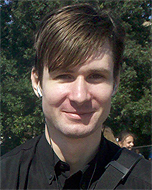 The ABC of Harmony contains a lot of achievements and positive aspects, among which I would single out the focus on the Internet and the openness towards new information technologies through the system of tetranet harmonious thinking, tetrastatistics, tetramaths, along with the two powerful integrated tools: social genome of society – socionome, and psychological genome of man – psynome. This networking toolkit is unique, and we can safely assume that it is able to open a fundamentally new direction for the development of the Internet and technology of its effective and harmonious use by the human of harmonious civilization. The ABC of Harmony contains a lot of achievements and positive aspects, among which I would single out the focus on the Internet and the openness towards new information technologies through the system of tetranet harmonious thinking, tetrastatistics, tetramaths, along with the two powerful integrated tools: social genome of society – socionome, and psychological genome of man – psynome. This networking toolkit is unique, and we can safely assume that it is able to open a fundamentally new direction for the development of the Internet and technology of its effective and harmonious use by the human of harmonious civilization.
Ivan Ivanov – Webmaster, providing the maintenance of the "Peace from Harmony" web-site, a partner of Leo Semashko since 2005. He took an active part in creating the "Peace from Harmony" web-site and GHA. | Vitaliy Ivashenko 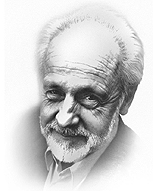 I like that The ABC of Harmony isn't only scientific, but also the poetic book including poetry of harmony from many countries of all continents of the Earth. I think that one of the displays of world harmony is an art which forms the Spiritual Human. Poetry is the most democratic art form. The majority of sacred books of all religions are written in poetic form. There is a wonderful harmony of thought and feeling, of content and form in the best samples of poetry. Therefore it easily comes into soul being the first (after the Nature) school and the ABC of individual harmony (viiv.co.ua). I like that The ABC of Harmony isn't only scientific, but also the poetic book including poetry of harmony from many countries of all continents of the Earth. I think that one of the displays of world harmony is an art which forms the Spiritual Human. Poetry is the most democratic art form. The majority of sacred books of all religions are written in poetic form. There is a wonderful harmony of thought and feeling, of content and form in the best samples of poetry. Therefore it easily comes into soul being the first (after the Nature) school and the ABC of individual harmony (viiv.co.ua).
Vitaliy Ivashenko, Professor of National Technical University "Kyiv Polytechnic Institute", Poet, Culture Honoured Worker of Ukraine. | Dmitriy Ivashintsov 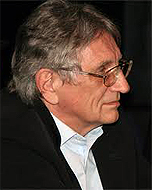 Speaking about one of the main principles of organization of the universe – the principle of symmetry, willing or not we readdress the question to the domain of aesthetics. Aesthetics, in its turn, is associated with the process of sensory perception, for which harmony is a characteristic of order, coherence, symmetry and proportion. Thus, by and large, harmony is the foundation of the world. This fact is well reflected in the ABC of Harmony. Speaking about one of the main principles of organization of the universe – the principle of symmetry, willing or not we readdress the question to the domain of aesthetics. Aesthetics, in its turn, is associated with the process of sensory perception, for which harmony is a characteristic of order, coherence, symmetry and proportion. Thus, by and large, harmony is the foundation of the world. This fact is well reflected in the ABC of Harmony.
Dmitry Ivashintsov – Professor, Honored Worker of Science, member of the Academy: RANS, RIA, IAEPS, scholar in hydropower, poet, philosopher and cultural expert. St. Petersburg, Russia. | Ernesto Kahan  In the ABC of harmony world textbook is presented the scientific sociological theory. As a doctor of medicine and peace worker, I can highlight the importance of ABC of harmony to achieve world peace. Social harmony is the deepest source for the universal peace. But this cause will be effective only if people will know how to achieve and develop social harmony. In this respect, this world textbook is very important by providing such knowledge. In the ABC of harmony world textbook is presented the scientific sociological theory. As a doctor of medicine and peace worker, I can highlight the importance of ABC of harmony to achieve world peace. Social harmony is the deepest source for the universal peace. But this cause will be effective only if people will know how to achieve and develop social harmony. In this respect, this world textbook is very important by providing such knowledge.
Dr. Ernesto Kahan, Prof. Emeritus of Tel Aviv University is Poet – Physician. 1st Vice President & Secretary General – World Academy of Arts and Culture, USA Former Vice President of IPPNW (Association awarded the Nobel Peace Prize) President of IPPNW Israel Co-President – UHE – International Union of Hispano-American Writers 1st Vice President of the Global Harmony Association (GHA) GHA Highest Honorary Title: "WORLD HARMONY CREATOR" | Norman Kurland 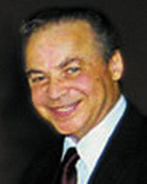 Those of us in the Center for Economic and Social Justice are deeply honored to have my brief article "A Just Global Economy for Harmonious Civilization" included in our collective book The ABC of Harmony. Our timely book links the growing number of servant-teacher-leaders who have been working with the Global Harmony Association to build a Global Harmonious Civilization, with supporters around the world of CESJ's blueprint for a "Just Third Way" beyond capitalism and socialism. Together we will bring Peace, Prosperity and Freedom through Harmonious Justice to all members of global civilization, from the bottom-up. Those of us in the Center for Economic and Social Justice are deeply honored to have my brief article "A Just Global Economy for Harmonious Civilization" included in our collective book The ABC of Harmony. Our timely book links the growing number of servant-teacher-leaders who have been working with the Global Harmony Association to build a Global Harmonious Civilization, with supporters around the world of CESJ's blueprint for a "Just Third Way" beyond capitalism and socialism. Together we will bring Peace, Prosperity and Freedom through Harmonious Justice to all members of global civilization, from the bottom-up.
Dr. Norman G. Kurland. He heads the Center for Economic and Social Justice and Equity Expansion International, Inc. He was deputy chairman of President Reagan's Presidential Task Force on Project Economic Justice and co-authored Curing World Poverty: The New Role of Property (1994) and Capital Homesteading for Every Citizen (2004). Doctor of Laws degree from the University of Chicago. Web: www.cesj.org,
E-mail: thirdway at cesj.org. Arlington, Virginia, USA. | Svetlana Kuskovskaya 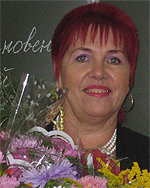 The creation of our ABC of Harmony gathered and united people of different nationality, religion, profession, but not apathetic. People who want to change the mentality and make the world a spiritual and harmonious place. While reading the articles and responses, I keep coming to the conclusion that this project which brought together our team is of high importance. It is impossible to live further the way that we live today. Society keeps losing the values accumulated by mankind during the centuries: the respect and reverence for elders, respect for children, rules of conduct … It is hard for parents and schools to raise a decent citizen, when they do not get any support of the media. There is no ideal to strive for. Our ABC of Harmony is the first step towards changing the world for the better. This is going to be the first book for adults and children, which will open the "door" to the World of Harmony. As a result of collective discussion, it has undergone many changes and has become more clear, coherent and understandable. Its importance is undeniable. As for me, being a primary school teacher, I am going to embody the idea of the ABC of Harmony in my teaching. This will help me "sow" all the values of good and eternal in the consciousness of kids, building their citizenship and harmonious personality. The creation of our ABC of Harmony gathered and united people of different nationality, religion, profession, but not apathetic. People who want to change the mentality and make the world a spiritual and harmonious place. While reading the articles and responses, I keep coming to the conclusion that this project which brought together our team is of high importance. It is impossible to live further the way that we live today. Society keeps losing the values accumulated by mankind during the centuries: the respect and reverence for elders, respect for children, rules of conduct … It is hard for parents and schools to raise a decent citizen, when they do not get any support of the media. There is no ideal to strive for. Our ABC of Harmony is the first step towards changing the world for the better. This is going to be the first book for adults and children, which will open the "door" to the World of Harmony. As a result of collective discussion, it has undergone many changes and has become more clear, coherent and understandable. Its importance is undeniable. As for me, being a primary school teacher, I am going to embody the idea of the ABC of Harmony in my teaching. This will help me "sow" all the values of good and eternal in the consciousness of kids, building their citizenship and harmonious personality.
Svetlana Kuskovskaya – Primary school teacher of the highest category, Novaya Ladoga, Russia
| Erika Lazarova 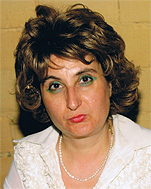 The noble and humane goal of the authors of the ABC of Harmony is to work together in order to create its foundation that will open the way of conscious building of global humane civilization. It is a modern holistic concept that underlies the ABC; it explains the mechanisms of the development of society and the ability to achieve the level of global harmonious civilization. The idea of tetradic structure of social life creates a new paradigm of theoretical humanitarian thinking. The combination of its socio-humanitarian theories, models, and statistical formulas makes it possible to logically and systematically determine the basic characteristics of harmonious civilization and explain the mechanisms of its functioning. I really appreciate the emphasis made on the role of parents in the upbringing of the younger generation. This is a particularly important role of the ABC of Harmony as the major civilization factor of the 21st century and accelerator of progress. But to understand the mission of our ABC a new consciousness and spiritual work of teachers, parents and youth are required in order to implement the ideal of the harmonious development of society and man. Perhaps in future, with the development of the ABC, it will name not only twenty, but a greater number of elements of harmony. For now it is just my guess. I congratulate everyone with our responsible deed and wish an inspiration in it. The noble and humane goal of the authors of the ABC of Harmony is to work together in order to create its foundation that will open the way of conscious building of global humane civilization. It is a modern holistic concept that underlies the ABC; it explains the mechanisms of the development of society and the ability to achieve the level of global harmonious civilization. The idea of tetradic structure of social life creates a new paradigm of theoretical humanitarian thinking. The combination of its socio-humanitarian theories, models, and statistical formulas makes it possible to logically and systematically determine the basic characteristics of harmonious civilization and explain the mechanisms of its functioning. I really appreciate the emphasis made on the role of parents in the upbringing of the younger generation. This is a particularly important role of the ABC of Harmony as the major civilization factor of the 21st century and accelerator of progress. But to understand the mission of our ABC a new consciousness and spiritual work of teachers, parents and youth are required in order to implement the ideal of the harmonious development of society and man. Perhaps in future, with the development of the ABC, it will name not only twenty, but a greater number of elements of harmony. For now it is just my guess. I congratulate everyone with our responsible deed and wish an inspiration in it.
Erika Lazarova – Doctor of Historical Sciences, Senior Research Fellow, Centre of Science Research and History of Science, Bulgarian Academy of Sciences, Bulgaria. | Evelin Lindner 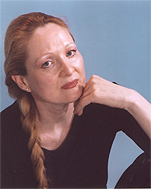 The ABC of Harmony is one of Leo Semashko's and GHA co-authors most ambitious projects. I have come to admire the untiring dedication with which Leo pursues his mission. He is set to bring his sociological model of harmony into the world as a vision for world peace and a new, harmonious, and dignified global society. This harmony revolution is profoundly different from former revolutions. In past times, revolutionaries simply replaced their former masters as new dominators, maintaining the same authoritarian style as their former masters, dominating underlings and militating against the "enemy camp." A harmony revolution means more. It means refraining from humiliating each other, it means refraining from building apartheid-like systems that humiliate through their institutions. It means co-creating new forms of living together, as a united human family, in never-ending dialogues between equals, who nurture relationships of mutual respect, dignity, and partnership. The ABC of Harmony is one of Leo Semashko's and GHA co-authors most ambitious projects. I have come to admire the untiring dedication with which Leo pursues his mission. He is set to bring his sociological model of harmony into the world as a vision for world peace and a new, harmonious, and dignified global society. This harmony revolution is profoundly different from former revolutions. In past times, revolutionaries simply replaced their former masters as new dominators, maintaining the same authoritarian style as their former masters, dominating underlings and militating against the "enemy camp." A harmony revolution means more. It means refraining from humiliating each other, it means refraining from building apartheid-like systems that humiliate through their institutions. It means co-creating new forms of living together, as a united human family, in never-ending dialogues between equals, who nurture relationships of mutual respect, dignity, and partnership.
Evelin G. Lindner, MD, PhDs (Dr. med. and Dr. psychol.), Transdisciplinary Scholar in Social Sciences and Humanities. Founding President of Human Dignity and Humiliation Studies (HumanDHS), and World Dignity University initiator. World citizen. | Glen Martin 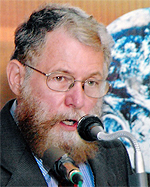 The ABC of Harmony [its Peace Science, Spheronics is] Our New Planetary Paradigm. The fundamental revolution in science and paradigm shift in human consciousness emerging from the most advanced thinking of the 20th century is expressed with great insight by Leo Semashko in his together the GHA coauthors ABC of Harmony. Nature and the cosmos have now been understood as an evolutionary upsurge of wholes within ever-greater wholes from the micro level to the totality of the cosmos. The ABC of Harmony draws upon this cosmic and ontological context to articulate schemata of human social and personal harmony capable of integrating human civilization into the deeper harmonies of the cosmic reality within which we are immersed. The ABC of Harmony [its Peace Science, Spheronics is] Our New Planetary Paradigm. The fundamental revolution in science and paradigm shift in human consciousness emerging from the most advanced thinking of the 20th century is expressed with great insight by Leo Semashko in his together the GHA coauthors ABC of Harmony. Nature and the cosmos have now been understood as an evolutionary upsurge of wholes within ever-greater wholes from the micro level to the totality of the cosmos. The ABC of Harmony draws upon this cosmic and ontological context to articulate schemata of human social and personal harmony capable of integrating human civilization into the deeper harmonies of the cosmic reality within which we are immersed.
The evolutionary upsurge within our holistic cosmos could and should animate human consciousness and society, but it is up to us to actualize this potentiality. As the ABC of Harmony puts this "All the necessary and sufficient elements of social harmony are completely created by society and depend only from it as only society creates for itself these preconditions." Human civilization, therefore, arising from our universal common humanity irrespective of particular differences, desperately needs this paradigm shift from fragmentation, conflict, and division to the integrated elements articulated in the ABC of Harmony. It is up to us, and a path to harmony and integration is laid out in this document. One fundamental aspect of the ascent to civilizational harmony is the Constitution for the Federation of Earth. It provides a democratic and legal framework for the truth expressed by the ABC of Harmony that "people include all human beings from conception, irrespective of other qualities: gender, race, age, culture, religion, and so on." The Constitution constitutes a global social contract that guarantees rights and responsibilities for all, simply as human beings, to ecological integrity, peace, social justice, and the fundamental elements of civilizational harmony. In this respect it provides a necessary condition for the actualization of the paradigm of harmonious civilization outlined in the ABC of Harmony. The future of humanity and our precious planet Earth depend on our ability to accomplish this profound transformation of both consciousness and society from fragmentation and division to integration and harmony. Dr. Glen T. Martin, Secretary-General, World Constitution and Parliament Assoc. President, Institute on World Problems. Professor of Philosophy, Radford University, USA | Charles Mercieca 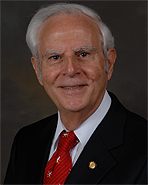 The ABC of Harmony as an instrument of world peace furnishes a good guideline for all those who are dedicating their lives for the promotion of peace and harmony throughout the world. Peace can be achieved on a permanent basis through healthy dialogues conducted on a mutual beneficial basis. Peace is feasible and it can be secured only after we try to contribute our share with hope and perseverance. If we do our best God will always do the rest. The ABC of Harmony as an instrument of world peace furnishes a good guideline for all those who are dedicating their lives for the promotion of peace and harmony throughout the world. Peace can be achieved on a permanent basis through healthy dialogues conducted on a mutual beneficial basis. Peace is feasible and it can be secured only after we try to contribute our share with hope and perseverance. If we do our best God will always do the rest.
Charles Mercieca, Ph.D., President, International Association of Educators for World Peace, Dedicated to United Nations Goals of Peace Education, Environmental Protection, Human Rights & Disarmament, Professor Emeritus, Alabama A&M University, USA. Global Harmony Association Vice-President. | Sergey Pokrovskiy 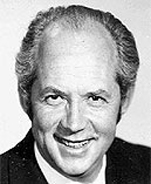 Without any doubt the ABC of harmony is an important factor in the transition fromindustrial civilization to the harmonious development of civilizational societies in accord with nature. Within this framework the problem of correlation between triad and tetrad structures of social cohesion, adopted in theABC, is being solved. This is a transition to a new level of thinking while retaining all the merits of the former. The combined use of these structures will allow to solve the problem of technological cycles on a scientific basis, providing clean, harmonious,closed production. Without any doubt the ABC of harmony is an important factor in the transition fromindustrial civilization to the harmonious development of civilizational societies in accord with nature. Within this framework the problem of correlation between triad and tetrad structures of social cohesion, adopted in theABC, is being solved. This is a transition to a new level of thinking while retaining all the merits of the former. The combined use of these structures will allow to solve the problem of technological cycles on a scientific basis, providing clean, harmonious,closed production.
Sergey Pokrovskiy – Senior Research Fellow, Member of the International Academy of Informatization, Honored Workerof Science and Education in RAE. Moscow, Russia. | Aleksandr Semashko 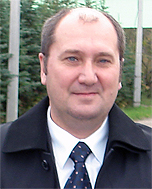 Watching the collaborative creation of the ABC with the knowledge of the ideas of social harmony of tetrism, we clearly see how they are being polished, while giving a rise to the new discoveries. The idea of harmony of four spheres with their products and classes is a breakthrough in sociology. Statistical matrix of these spheres, which is based on the five clusters of the elements of social harmony, will allow people to calculate the coherence of social processes in order to lead public interest to the development of man himself. In modern society, their vector points on material sphere, where all relationships in society are based on the principle of buying as cheap as possible and selling as expensive as possible. Today, it stands on a pedestal of our society, and the principles of harmony are thrown aside. The discovery of socionome is a turning point in the scientific understanding of the holistic process of social harmony. On this basis, it is possible to create mathematical models and scenarios for the development of state, district, city and family as a whole, as well as the development of man himself. By its importance the discovery of socionome can be compared to the formula of Karl Marx's Commodity – Money – Goods '– Money,' but in a new way: Disharmony – Harmony – Disharmony'– Harmony'. According to the formula of Marx the industrial society with its deep unresolved contradictions, reckless use of resources of earth and alienation of man develops and degrades. Socionome will allow us to consciously build harmonious society and turn its vector of development towards human. Watching the collaborative creation of the ABC with the knowledge of the ideas of social harmony of tetrism, we clearly see how they are being polished, while giving a rise to the new discoveries. The idea of harmony of four spheres with their products and classes is a breakthrough in sociology. Statistical matrix of these spheres, which is based on the five clusters of the elements of social harmony, will allow people to calculate the coherence of social processes in order to lead public interest to the development of man himself. In modern society, their vector points on material sphere, where all relationships in society are based on the principle of buying as cheap as possible and selling as expensive as possible. Today, it stands on a pedestal of our society, and the principles of harmony are thrown aside. The discovery of socionome is a turning point in the scientific understanding of the holistic process of social harmony. On this basis, it is possible to create mathematical models and scenarios for the development of state, district, city and family as a whole, as well as the development of man himself. By its importance the discovery of socionome can be compared to the formula of Karl Marx's Commodity – Money – Goods '– Money,' but in a new way: Disharmony – Harmony – Disharmony'– Harmony'. According to the formula of Marx the industrial society with its deep unresolved contradictions, reckless use of resources of earth and alienation of man develops and degrades. Socionome will allow us to consciously build harmonious society and turn its vector of development towards human.
Alexander Semashko – Entrepreneur, Executive Director of Export-Line. Kaluga, Russia | Andrey Smirnov 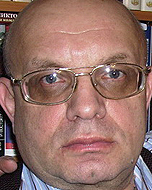 The ABC of Harmony, presented by the group of co-authors of GHA, headed by the famous St. Petersburg philosopher and sociologist Leo Semashko, is a practice-oriented way of achieving harmonious state of modern civilization. It captivates with integrity of its arguments and logical conclusions. It is based on the original concept of system-spheral (tetrasociological) approach, allowing examining with a high precision, analyzing and predicting the development of society. Qualitative models of this approach provide us with the broad application of advanced mathematical methods that extends immensely its practical use. For the first time we are able to qualitatively and quantitatively calculate all the possibilities of formation, operation and development of the levels of harmonious society. The ABC of Harmony is a fundamentally innovative and noteworthy work. The ABC of Harmony, presented by the group of co-authors of GHA, headed by the famous St. Petersburg philosopher and sociologist Leo Semashko, is a practice-oriented way of achieving harmonious state of modern civilization. It captivates with integrity of its arguments and logical conclusions. It is based on the original concept of system-spheral (tetrasociological) approach, allowing examining with a high precision, analyzing and predicting the development of society. Qualitative models of this approach provide us with the broad application of advanced mathematical methods that extends immensely its practical use. For the first time we are able to qualitatively and quantitatively calculate all the possibilities of formation, operation and development of the levels of harmonious society. The ABC of Harmony is a fundamentally innovative and noteworthy work.
Andrei Smirnov – Professor in Theory, History and Philosophy of Culture in Novgorod State University named after Yaroslav-the-Wise. Novgorod, Russia | Yehuda Stolov 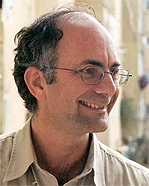 The ABC of Harmony is a comprehensive collection of the richness of aspects of social harmony, from its religious and social roots to its implementation in the various walks of life. I am sure that many people will find this book very useful and that the knowledge and inspiration they will gain from it will both encourage and empower them to take part in actual interfaith encounters so they actively join the process of world harmony building. This book will be very useful and important in our organization for our interfaith dialogue between Arabs and Jews. The ABC of Harmony is a comprehensive collection of the richness of aspects of social harmony, from its religious and social roots to its implementation in the various walks of life. I am sure that many people will find this book very useful and that the knowledge and inspiration they will gain from it will both encourage and empower them to take part in actual interfaith encounters so they actively join the process of world harmony building. This book will be very useful and important in our organization for our interfaith dialogue between Arabs and Jews.
Dr. Yehuda Stolov: Executive Director, Interfaith Encounter Association, works to build peaceful inter-communal relations in the Holy Land through active interfaith dialogue. Jerusalem, Israel | Grigoriy Tulchinskiy 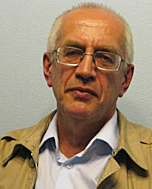 The ABC…It is a unique experience of joint work of mind and soul of different cultures, united by one common idea – the possibility of the harmonious development of human society. Despite all the outward utopia of this idea, when you see its implementation from the inside, you realize that nothing can be more effective and realistic than joint thoughts, wordsand deeds. Not only is it the theoretical value of ABC harmony, but also its great applicatory potential. The ABC…It is a unique experience of joint work of mind and soul of different cultures, united by one common idea – the possibility of the harmonious development of human society. Despite all the outward utopia of this idea, when you see its implementation from the inside, you realize that nothing can be more effective and realistic than joint thoughts, wordsand deeds. Not only is it the theoretical value of ABC harmony, but also its great applicatory potential.
Grigoriy Tulchinskiy – Honored Worker of Science of Russia, PhD and professor at the Higher School of Economics. St. Petersburg, Russia | Laj Utreja 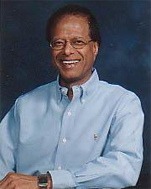 The Harmony Alphabet of 20 Fundamental Elements/Spheres is the nucleus of the ABC of Harmony. It is the first attempt of Prof. Leo Semashko together with the GHA coauthors to understand and develop the deep foundations of social and individual harmony in systematic form of the collective textbook. Starting with one underlying axiom and 5 clusters of harmony to which the axiom applies, they expound upon the tetra structure of the clusters from the ideas of the early thinkers, such as Pythagoras, Empedocles, Plato, Carl Jung, Talcott Parsons and many others. These 20 fundamental elements are the necessary, sufficient and coherent preconditions of social harmony consistent with the current scientific knowledge. one of the important facets of the ABC of Harmony exposition is providing a mathematical basis to 4 spheres of reproduction to express integral harmony of a society at all levels. Very important is delineating the tetra elements: Spheres of Production, PIOT Resources, PDEC Processes, Spheral Classes, and Spheres of human as ABC of Harmony Stages providing a conscious holistic principle, common to all peoples of different cultures. The ABC provides a fertile ground for further research and a new direction in the development of social sciences. The Harmony Alphabet of 20 Fundamental Elements/Spheres is the nucleus of the ABC of Harmony. It is the first attempt of Prof. Leo Semashko together with the GHA coauthors to understand and develop the deep foundations of social and individual harmony in systematic form of the collective textbook. Starting with one underlying axiom and 5 clusters of harmony to which the axiom applies, they expound upon the tetra structure of the clusters from the ideas of the early thinkers, such as Pythagoras, Empedocles, Plato, Carl Jung, Talcott Parsons and many others. These 20 fundamental elements are the necessary, sufficient and coherent preconditions of social harmony consistent with the current scientific knowledge. one of the important facets of the ABC of Harmony exposition is providing a mathematical basis to 4 spheres of reproduction to express integral harmony of a society at all levels. Very important is delineating the tetra elements: Spheres of Production, PIOT Resources, PDEC Processes, Spheral Classes, and Spheres of human as ABC of Harmony Stages providing a conscious holistic principle, common to all peoples of different cultures. The ABC provides a fertile ground for further research and a new direction in the development of social sciences.
Laj Utreja, Ph.D., Founder, Institute of Spiritual Healing, USA; President, GHA-USA | Svetlana Vetrova 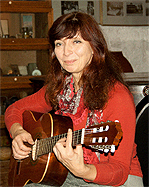 I realize the fundamental nature, theoretical novelty and value of our collective work – the ABC of Harmony for people. I believe that only the practical exercises will allow people without having a theoretical basis, to absorb all its large-scale structures: elements, clusters, socionomies – and their vital relationship. In the same manner in which 35 years ago in "Demiurge" through the practice we were able to achieve philosophical understanding of those structures, realization of the development of our personal, inner spheres: character, consciousness, will and body. That is how we were gradually growing as personalities. It is very important that the new categorical apparatus has been created, over time with our help it will be filled with life. As for me, being a bard, I am ready to fill these dry circuits with music and songs. I realize the fundamental nature, theoretical novelty and value of our collective work – the ABC of Harmony for people. I believe that only the practical exercises will allow people without having a theoretical basis, to absorb all its large-scale structures: elements, clusters, socionomies – and their vital relationship. In the same manner in which 35 years ago in "Demiurge" through the practice we were able to achieve philosophical understanding of those structures, realization of the development of our personal, inner spheres: character, consciousness, will and body. That is how we were gradually growing as personalities. It is very important that the new categorical apparatus has been created, over time with our help it will be filled with life. As for me, being a bard, I am ready to fill these dry circuits with music and songs.
Svetlana Vetrova – songwriter, teacher and musician. She tours around Russia, as well as Germany, Israel, France and the United States with concerts. Author of children's songs "About Koha and Myha" (2010). St. Petersburg, Russia | Nina Yudina 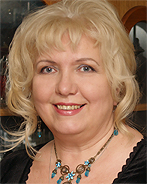 By composing the ABC of Harmony, we createa collective global manual for everyone! A book of such kind was never issued before! Not a single scientistor a group of specialists did ever offerascientific theory of Social Harmony! We are in constant search for our harmony. We are looking for love, confidence in tomorrow and happiness. Why do wars, ethnic strives and religious conflicts take place? What is the reason of PEACE being so unstable? In my opinion, you just have to turn to the individual through the harmonyof society! The ABC’s socionome shows everyone how significant and important all aspects of man are!Neither money nor scarce resources of the planet, but the HUMAN is the crown of nature and society! The cause of my participation in the project is a search for harmony in self, poetry, musicand by the desire for my children to live in the Harmonious World free from war and strife! By composing the ABC of Harmony, we createa collective global manual for everyone! A book of such kind was never issued before! Not a single scientistor a group of specialists did ever offerascientific theory of Social Harmony! We are in constant search for our harmony. We are looking for love, confidence in tomorrow and happiness. Why do wars, ethnic strives and religious conflicts take place? What is the reason of PEACE being so unstable? In my opinion, you just have to turn to the individual through the harmonyof society! The ABC’s socionome shows everyone how significant and important all aspects of man are!Neither money nor scarce resources of the planet, but the HUMAN is the crown of nature and society! The cause of my participation in the project is a search for harmony in self, poetry, musicand by the desire for my children to live in the Harmonious World free from war and strife!
Nina Yudina – Petroleum engineer, poet – award winner in the contest "Golden Pen of Volgograd", member of Artists Union of Russia, member of female chamber choir "Lestvitsa".
Ada Aharoni, Ph.D., Prof. Founding President of IFLAC: The International Forum for the Literature and Culture of Peace (Founded 1999). The GHA Cofounder. Nesher, Israel. Maria Cristina Azcona, Educational Psychologist, Family Counselor and specialist in forensic psycho-diagnosis. She has obtained two university titles. Bilingual MCA poets for peace: founder. The Love Foundation Argentina Director. GHA Vice-President. Buenos Aires, Argentina. Reimon Bachika, Professor Emeritus (Dept Sociology) Bukkyo University, Kyoto, Japan. Leonid Belyi, Ph.D., Crimean Academy of Sciences member, Prof. National Academy of Art and Architecture. Simferopol, Ukraine. Tholana Ashok Chakravarthy, Poet & Review Writer. Doctor of Literature. Universal Peace Ambassador. GHA Vice-president. Hyderabad, India. Haji Syed Salman Chishty, Dr. Director, Chishty Foundation. GHA-India Vice-President. Ajmer, Rajasthan, India. Renato Corsetti, Professor of Psycholinguistics in the University "La Sapienza" in Rome. President of the World Esperanto-Association, UEA, in consultative relations with UN and UNESCO. GHA Vice-President. Rome, Italy. Guy Créquie, French Poet, opera singer and philosopher. Vénissieux, France.
Kanak Mal Dugar, Chairman, Gandhi Vidya Mandir. Chancellor, IASE deemed University, GHA-India Honorary President. Sardarshahar, Rajasthan, India. Ananta Kumar Giri, PhD in sociology. Madras Institute of Development Studies. GHA Vice-President on sociology. Chennai, India. Mikhail Y. Gurov, Psychologist. International commonwealth of Creative Coaching "Zeora". Coach of educational programs. St Petersburg, Russia. Habyarimana Héli, Linguist, Assistant Lecturer, Institute of Agriculture, Technology and Education of Kibungo (INATEK). Rwanda, Kigali. Zaure Hizatolla, Poet, writer, peacemaker. President of the GHA Kazakhstan. Almaty, Kazakhstan. Anita Hrast, General manager, IRDO Institute for Development of Social Responsibility, Maribor, Slovenia. Panayotis (Takis) Ioannides, Poet. Athens, Greece. Tatomir Ion-Marius, Poet and peace activist from Romania. Alla Ivashintsova, Together with mother has lived through the Siege of Leningrad. Poetess and artist. St. Petersburg, Russia. Tatiana Kasatkina, Doctor of Philology, Head of Department of Theory of Literature in World Literature Institute of RAS, Chairman of the Commission for the Study of the creative heritage of F. Dostoevsky, held by Scientific Council of "The History of World Culture" of the Russian Academy of Sciences. Moscow, Russia. Dimitris P. Kraniotis, Greek poet and medical doctor. GHA Vice-President. Larissa, Greece. José María Lopera, Poet, writer, archaeologist and historian, journalist and translator. Alora, Spain.
Nadeem Masih, Director, Human Welfare Organization. Toba Tek Singh, Pakistan. Matjaž Mulej, Dr. (economics), Dr. (management). Prof. Emeritus (Systems and Innovation Theory). President, International Academy for Systems and Cybernetic Sciences. Maribor, Slovenia. Manijeh Navidnia, Assistant Professor in Sociology, faculty member at Azad University. Garmsar, Iran. Apostolos J. Paschos, Doctor of the Medical University of Athens and of the Medical University of Ioannina. Writer, historical, poet, and researcher. Metsovon, Greece. Surendra Pathak, Ph.D. in Linguistics. Associate Professor and Head of the Department, Value Education, IASE University. President, GHA-India. Sardarshahar, Rajasthan, India. Steve Varatha Rajan, Ph.D. Founder and Chairman of Borneo Open International University. IAEWP Vice President for Strategy. GHA Vice-President. Malaysia. Yagnaswami Sundara Rajan, Ph.D. Scientist, Technologist, Administrator, Organisation Builder and Leader, Diplomat, Academic, Writer and Poet. Bangalore, India. Sudhamahi Regunathan, Member Secretary, Foundation for Unity of Religions and Enlightened Citizenship. New Delhi, India.
Mary Luz Robayo, PhD; Sociology Professor, University of Manizales, Columbia. Marie Robert, Artist and actor of peace, teacher and choreographer performer, writer, photographer, hiker and climber. Chamonix, France. Susana Roberts, Poet and writer. Trelew, Argentine.
Marietta Cuesta Rodríguez, Poet, painter, writer. Ecuador. Dr. Maitreyee Bardhan Roy, Ph.D. Basanti Devi College Principal. Kolkata, India. Andrey L. Semashko, Technician. St. Petersburg, Russia. Katerina A. Semashko, Student of Medical College. Saint-Petersburg, Russia. Peter A. Semashko, Jurist. Moscow, Russia.
Subhash Sharma, Dr. Director, Indus Business Academy. Poet. Bangalore, India. Lida Sherafatmand, Poet and painter. Malta. Rudolf Siebert, Ph.D. Professor of Religion and Society in the Department of Comparative Religion at Western Michigan University. GHA cofounder and GHA highest Honorary Title: World Harmony Creator. Kalamazoo, Michigan, USA. Ram Krishna Singh, Ph.D. Poet and Head, Dept of Humanities & Social Sciences, Indian School of Mines. Dhanbad, India.
Henry Skvortsov, Member of the International Academy of Fundamental Education, Dr. in Mathematics; system analyst, new knowledge creator, mathematician, physic-theoretician. GHA Honorary member and one of the founders of "Peace from Harmony" and GHA in 2005. St-Petersburg, Russia.
Nicolas Strelkov, President of "Demiurge" Club, Design Engineer. Ulyanovsk, Russia. David Allen Stringer, Poet, painter & playwright. Cornwall, United Kingdom. Alexander Subetto, President of the Noosphere Public Academy of Sciences, Honorary Scientist of Russian Federation, Doctor of Philosophy, Doctor of Economic Sciences, Professor. St. Petersburg, Russia. Leonid Timoshenko, Composer, scientist astrophysicist with a degree.The GHA Vice-president. Moscow, Russia. Svetlana Tsymbalist, Teacher, poet, member of the Writers Union of Russia. Moscow, Russia. Yuri Tsymbalist, Poet, musician, composer, member of the Writers Union of Russia. Moscow, Russia. Rene Wadlow, Editor of the online journal of world politics and Representative to the UN, Geneva, Association of World Citizens. Le Passe, France. Zdenka Ženko, Dr. (economics), Ass. Prof. (Systems Theory and Innovation Management), University of Maribor. Maribor, Slovenia. 76 Authors from 26 Countries:
- Algeria – 1
- Argentina – 2
- Belgium – 1
- Bulgaria – 1
- Colombia – 1
- Ecuador – 1
- England – 1
- France – 3
- Greece – 3
- India – 11
- Iran – 1
- Israel – 3
- Italy – 1
- Kazakhstan – 1
- Malaysia – 1
- Malta – 1
- Japan – 1
- Norway – 1
- Pakistan – 1
- Romania – 1
- Russia – 25
- Rwanda – 1
- Slovenia – 3
- Spain – 1
- Ukraine – 3
- USA – 6
|
|
Up
|
| |
© Website author: Leo Semashko, 2005; © designed by Roman Snitko, 2005
|
|
|